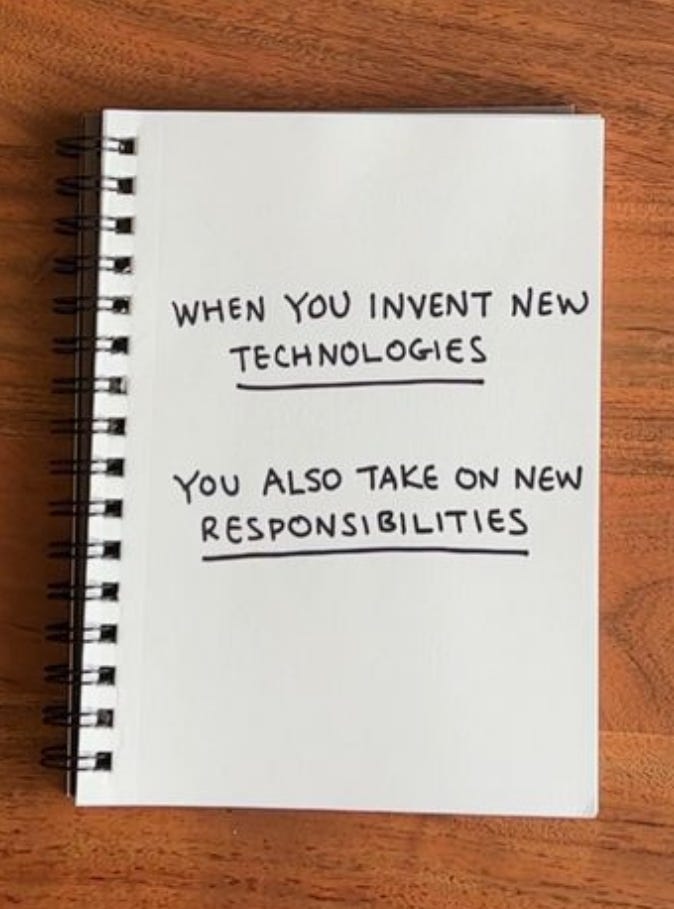027: We are being augmented
[After - Session 08] It doesn't really feel like a choice, but it kind of beats yelling loudly
Thanks for the reminder, Timehop. I tweeted my first tweet 16 years ago today.
Tim Urban, who created Wait But Why, is quite brilliant at synthesizing large abstract ideas, such as the history of Homo sapiens. Or time. Recently he tweeted a diagram of a 1,000 page book where each page equals 250 years. Then he compared the most recent page of this theoretical book (1770s to right now) with all preceding human history.
I take courage from this kind of illustration. It helps frame the seeming madness of AI-this, and Metaverse-that. Because 250 years ago pushing things with our arms was high tech.
We’re only going to go faster
In the last 72 hours, Google has opened a waitlist for Bard, its version of Bing and ChatGPT. (Casey Newton summarized everything well.) Microsoft announced the Bing Image Creator, which uses OpenAI’s DALL-E. Bill Gates published The Age of AI has begun. And OpenAI released a study suggesting (italics mine), “approximately 80% of the U.S. workforce could have at least 10% of their work tasks affected by the introduction of GPTs,” and perhaps with a wink, “higher-income jobs potentially facing greater exposure.” I mean, sure? This is what software does—it affects things, if I’m not mistaken.
Hot on the heels of the rest, Adobe has launched Firefly, its suite of AI-generative tools. The artist Karen X Cheng helped promote Adobe’s news with a post on Instagram by offering a meaningful observation on innovation and leadership.
And we’ll see if anyone creating the new tools listens to her. I have my doubts.
While we’re on the topic of Metaverse things, I’ll repeat my recommendation:
You really ought to read Metaverse 2030. I might take you 20 minutes. I think Louis Rosenberg’s fictional account of life amidst an augmented reality provides a salient roadmap. On the one hand, the story’s protagonist, Gordon, laments, “This didn’t feel like a choice to him, but a requirement, imposed by a world that was rapidly moving on without him.” (Feel familiar?) Yet on the other hand, well, let’s just say the story ends as we’d hope it might.
Next week we’re going to focus on data and creativity—and the ways in which the combination unlocks opportunity and the ways in which it creates friction.



